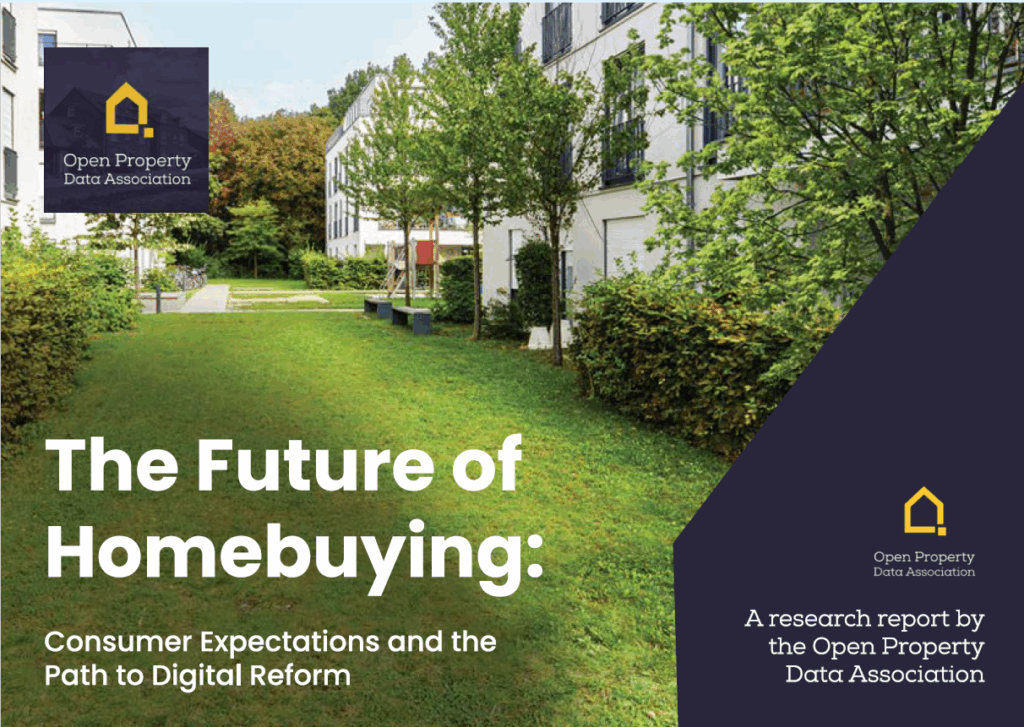Open Property Data Association (OPDA) members were delighted this week to read the vision that Craig Suckling, Chief Data Officer for UK Government CDDO, has set out for delivering access, trust, and reusability of public data.
The blog sets out many of the approaches that OPDA has campaigned for since launch to improve customer access to data about themselves, their identity, and their property in order to improve the homebuying process.
Activating data for national benefit and transformed public services
“We have huge untapped potential in our public sector data. Data is one of HMG’s most underutilised and highly valued assets with the power to transform our public services, unlock cross government efficiencies, and boost the UK economy.
As the UK Government Chief Data Officer, I am excited to be leading our efforts to deliver on transformational outcomes for the public and the UK with data. There is strong opportunity to now accelerate how we deliver on real change, building on the foundations that have been laid through the National Data Strategy and work on transformation to date. As part of the new digital centre for government in the Department for Science, Innovation and Technology (DSIT), we will continue the journey to improve quality, use and reuse of data across government in a responsible and ethical way. We will also turbo charge innovation, productivity, and resilience with data across the public sector, and transform the public experience of interacting with government.”
A mission-led data strategy
Data is imperative to the success of our five national missions. For example, cross-government sharing of property registration and geospatial data will reduce fuel poverty and create warmer homes, and help to make Britain a clean energy superpower. Increased sharing of health data will reduce NHS wait times for critical care, reduce fraud, and increase speed and accuracy in diagnostic services. Safe, open data on education will break down barriers to opportunity, and deliver improved learning to all children with personalised AI educational services in schools. Linking data like the HMRC, Department for Work and Pensions, and the Home Office will identify areas of high risk crime, and support police forces in creating safer streets.
To create change we need to move fast to deliver on mission outcomes, but must also ensure sustained scale with a focus on transformed culture, policy and standards, legislation, technology, skills and talent. We need to collaborate across government to make this possible. This requires strong vision and commitment, staying focused on the users of government’s priorities, and coordinated investment and execution of work.
Our areas of strategic focus
Data is right at the heart of our transformation, and is the driving force to deliver optimal cross governmental working, and seamless citizen experiences. To accelerate change we are focused on five themes.
- We need to unlock access and break down silos while maintaining public trust in secure and ethical data sharing across the public sector and nationally. To do so we will deploy and scale a library and exchange service, it will transform the way we manage our public sector data
- We must deliver mission aligned outcomes fast and sustainably through a targeted approach to priority services with a focus on AI enablement, real-time data exchange and event driven architectures
- We need to incentivise change with the right system-wide inputs. Building a common vision and definition of value; addressing cultural barriers; and establishing strong governance and transparency that builds public trust
- We must enable innovation and best practice at scale through legislation, policy, and standards; a skilled workforce and strong community across the public and private sector.
- Finally, we have to reduce cost and increase resilience across the public sector and UK economy with modern data architectures and infrastructure; secure by design; optimise and standardise partnering and procurement






